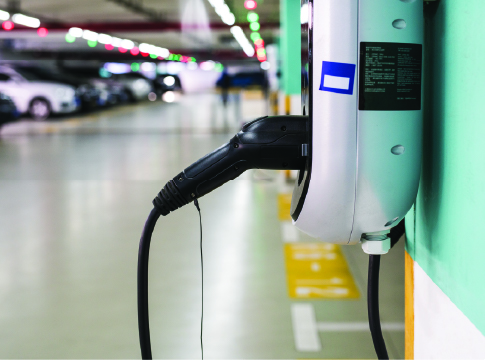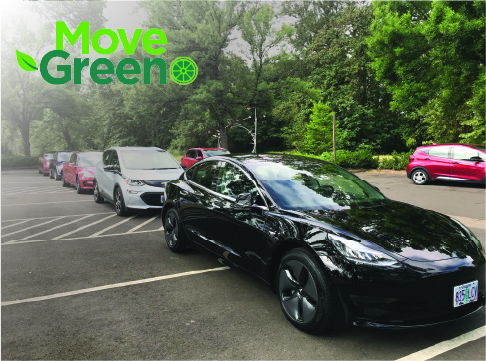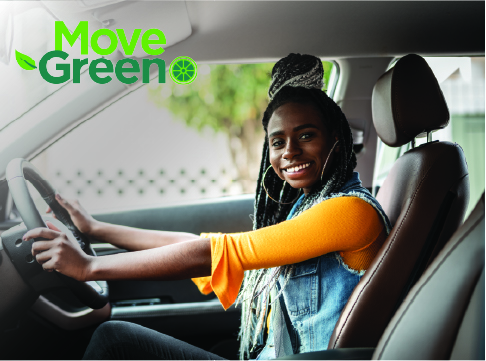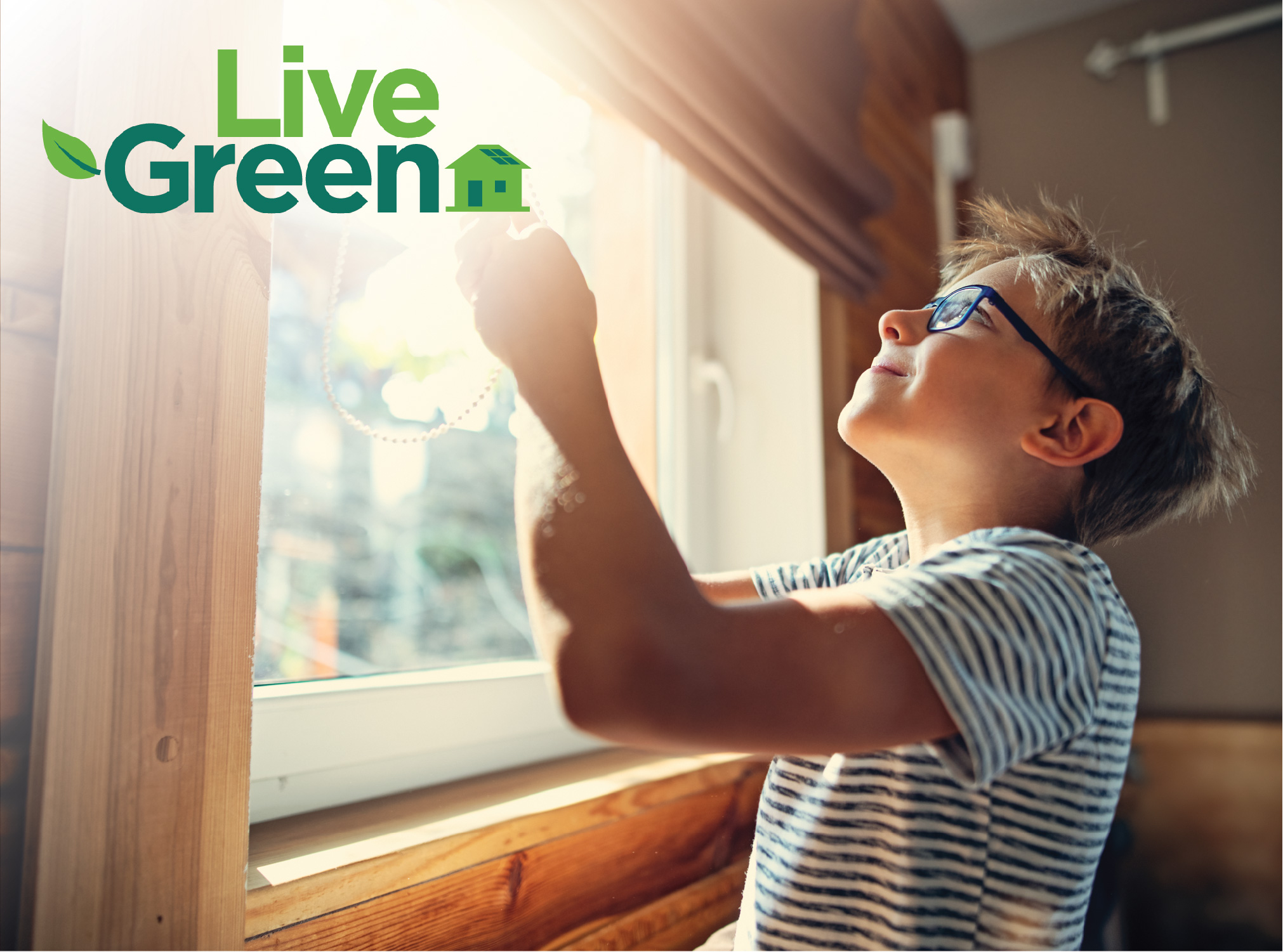Questions?
Email our energy experts or call 541-685-7088 for more information.
In addition to the cost savings you'll get from driving an EV, there are also tax and rebate incentives that could save you thousands of dollars on your purchase or lease.
An electrical permit is required for the installation of a Level 2 home charging station. Eugene residents should contact the City of Eugene permit office for specific requirements regarding permitting and inspections before installation.
Electric vehicle home charging rebate (up to $500)
A critical component of owning an EV is charging it. While you can charge your vehicle with a standard 120-volt outlet, a 240-volt Level 2 home Electric Vehicle Supply Equipment (EVSE), commonly called "charging station" allows you to charge in less than a third of the time. This faster rate of charging allows for flexibility to charge your EV during off-peak times. EWEB recommends installing a 30 amp or higher EVSE to allow for faster charging speeds.
We want to make it easy, fast, and convenient to charge your EV at home using the cleanest, off-peak energy. EWEB's $500 Smart Charge Rebate can help you pay for the purchase and installation of a qualified level 2 home charging station.
To use as a reference in helping you find a level 2 home charging station that is right for you, visit PlugStar's Level 2 Home Charger page. The purchase of any of these stations is not requried to qualify for EWEB's rebate.
Funding for this program is in part made possible by the Oregon Clean Fuels Program (CFP) administered by the Oregon Department of Environmental Quality (ODEQ).
Qualifications
- Applicant must have the authority to direct and install the electric vehicle supply equipment (EVSE).
- An application must be submitted to EWEB within 120 days from the date of installation.
- Must be installed at the applicant's address and must be an EWEB electric customer.
- Installation site can be existing or new construction.
- Rebate is up to $500 and not to exceed the cost of the EVSE hardware and its installation.
- EVSE must be Level 2 (240V).
- Must be listed under a Nationally Recognized Testing Laboratory, including Underwriters Laboratories (UL) or Electrical Testing Laboratories (ETL).
- Installation must be permitted, inspected, and approved in compliance with the National Electric Code along with local, county and state requirements. It is the customer's responsibility to ensure the installation is done in compliance with applicable codes. For safety reasons, we recommend that a licensed electrician perform the installation. Do-it-yourself installations will need to be permitted.
- Resold, rebuilt, received from warranty insurance claims, or won as a prize are not eligible for rebates under this program.
- If EVSE is part of the purchase of an electric vehicle, it may qualify for a rebate, but only for the installation costs.
- Rebates are limited to one (1) rebate per residential electric account.
Required documents
- For purchased Level 2 (240V) charging stations, provide copies fo the invoice(s) for the:
- Level 2 (240V) charging station.
- Applicable electrician installation work. Provide permit information for do-it-yourself installations.
- For Level 2 (240V) charging stations that come free with the purchase of an electric vehicle, provide:
- Documentation verifying the Level 2 (240V) charging station came free with the vehicle.
- Copies of the invoice(s) for the 240V receptacle/outlet or hardwired electrical installation work. Provide permit information for do-it-yourself installations.
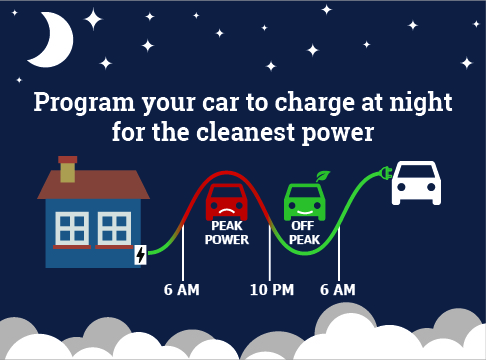
Planning to install an EV charger? Let’s work together to keep your service reliable
If you’re adding an electric vehicle (EV) charging station or other high-demand electrical equipment to your home or business, please contact EWEB Distribution Engineering at distributionengineering@eweb.org. Notifying us about your plans helps ensure your new equipment is seamlessly integrated into our system.
Why Is This Important? Adding significant electrical loads, like an EV charger, can sometimes strain the local electric distribution system. In some cases, this may require upgrades to equipment such as transformers or power lines that serve your neighborhood.
What to Expect: EWEB designs and sizes its infrastructure to meet the original maximum capacity of your service. If installing your new equipment requires an upgrade to your main breaker size, a Transformation Fee may apply. This fee reflects a proportional share of the cost to increase the capacity of shared electrical equipment (like transformers) that supports your service.
Transformation Fee Details
When is it charged?
- The Transformation Fee is only applied when substantial load increases require a meter or main breaker upgrade to maintain reliable service.
- If your home or business upgrades to a main breaker size above 200 amps, the fee will apply.
How much is the fee?
- The fee is assessed per amp of main breaker upgrade and is published in EWEB’s Customer Service Policy (Fee for Shared Transformer Capacity Costs).
- For example, if the Transformation Charge is $3.50 per amp of main breaker upgrade and your project requires an upgrade from a 200A to 320A main breaker and associated meter, you will pay your share of increased transformation capacity, which is 120A or $420.
When is it not charged?
- Since most meters support 200-amp service, if you upgrade your main breaker from 100A to 200A, no fee will be charged.
- If your load increases but remains within the current meter size, no fee will be assessed.
Other potential charges
Some increases in electrical load may require upgrades to equipment that serves only your property, such as service conductors. In these cases, the customer or property owner responsible for the increased load will be responsible for covering the costs of these upgrades.
Apply for $500 EV Home Charging Rebate
- Contact EWEB Distribution Engineering at distributionengineering@eweb.org to determine if a meter or main breaker upgrade is necessary.
- Purchase the EVSE and have it professionally installed by an electrician or permitted if it is a do-it-yourself project.
- After the completed installation of the EVSE, complete the Residential Program Application.
Have questions? Want to discuss your plans? Contact our team at distributionengineering@eweb.org, and we’ll guide you through the process. Working together, we can ensure our system is ready to power your EV and other energy needs for years to come!
Apply NowOregon Clean Vehicle Rebate Program
The Oregon Department of Environmental Quality's Oregon Clean Vehicle and Charge Ahead Rebate programs can save Oregonians up to $7,500 on the purchase or lease of a qualifying electric vehicle. All Oregonians can receive up to $2,500 for the purchase or lease of a qualifying new EV. Low- and moderate-income Oregonians can save an additional $5,000 on qualifying new or used EVs. Learn more and download an application on DEQ's website.
If you are purchasing or leasing your car from a dealer, you may be able to receive your rebate at the time of purchase. DEQ has developed an interactive map to locate dealerships with this arrangement in place.
Federal tax credit
The federal government's Zero Emission Vehicle Incentive Program means each automaker's eligible plug-in vehicles can receive a tax credit of up to $7,500 (based on vehicle battery size) until 200,000 eligible vehicles per manufacturer are registered in the U.S. After this point, the credit for that particular vehicle will be reduced and phased out over time.
As of April 2019, Tesla, Cadillac, and Chevrolet have reached 200,000 sales, so models now have a reduced tax credit value.
In addition, home or business installations of electric vehicle charging stations can receive a tax credit of up to 30 percent of the cost of installation. For more information about claiming the credit, see IRS Form 8911, which is available on the IRS Forms and Publications website.
Related Programs
EWEB and our community partners host events to provide customers the opportunity to ask questions and experience electric transportation firsthand.
You don't have to own a car to drive electric. Our partnership with Forth Mobility brings three electric car sharing stations to Eugene, including a dedicated station for residents of St. Vincent de Paul's Iris Place.
Help reduce your utility bill and lower your carbon footprint by living green. We offer rebates and loans for your home or rental property that can help offset the upfront cost to upgrade heating, cooling, water heating, windows and insulation.
Lower your operating costs and reduce your business’s carbon footprint by working green. We offer a variety of incentives to help you make improvements to your facilities.


